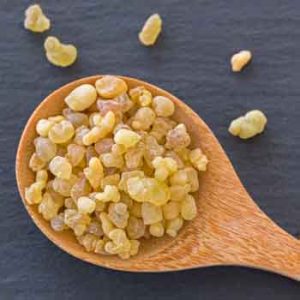
More evidence that low-calorie sweeteners are bad for your health
Studies show that artificial sweeteners can raise the risk of hypertension, metabolic syndrome, type 2 diabetes and heart disease, including stroke.

Natural Health News — Taking a supplement derived from frankincense could help asthmatics reduce their corticosteroid use.
The standard care for asthma, a chronic inflammatory disease, is inhaled corticosteroids plus, for some, oral long-acting beta-agonists. But these treatments don’t work for everyone and say the Italian researchers given the lack of definite and safe therapies, sufferers often turn to complementary or alternative treatments in combination with their regular care.
Frankincense (Boswellia serrata) resin has demonstrated anti-inflammatory properties and is once of many alternative treatments for asthma.
However, the efficacy of boswellia oral supplements can be limited by its low bioavailability. This study employed a highly bioavailable supplement of boswellia in a patented phospholips delivery system (Casperome) in order to test whether boswellia could reduce the use of inhaled corticosteroids.
» Frankincense resin has well known anti-inflammatory effects, but taken orally it may not be highly bioavailable
» Italian researchers gave people suffering from asthma a highly available form of frankincense and found that in 4 weeks it helped patients reduce their corticosteroid inhaler use by around 40%.
Cutting corticosteroid use
The small study involved 32 otherwise healthy adults with asthma who were currently being treated with inhaled corticosteroids plus oral long-acting beta-agonists or oral antihistamines or xanthine derivatives.
The participants were divided into two groups that received either 500 mg/day Casperome at breakfast along with their regular inhalation/oral asthma therapy or their regular inhalation/oral asthma therapy alone for 4 weeks.
The patients were told they could decrease the number of inhalations based on their perception of their respiratory function and the number of inhalations was recorded in a daily diary.
At baseline all patients used inhalation therapy twice daily (14times per week). In the control group, inhalation use was unchanged for the duration of the study. For the Casperome group, the number of inhalations decreased over the 4 weeks of the trial to just 8 – a reduction of 43%.
Decreasing airway inflammation
In previous studies boswellia has been shown to inhibit the production of inflammatory prostanoids which are over-expressed in patients with asthma. Other demonstrated anti-inflammatory activities of boswellia include inhibition of TH1 cytokines and increased production of TH2 cytokines, and regulation of vascular responses to inflammation.
The authors suggest that these effects result in decreased airway inflammation, and hence reduced use of corticosteroids.
This was a small study and results need to be confirmed in a larger trial. Nevertheless, The authors, writing in the journal European Review for Medical and Pharmacological Sciences, conclude that boswellia, delivered in a highly bioavailable form, in addition to standard asthma therapy would be beneficial for patients by decreasing the use of corticosteroid and that the decrease here had the potential to improve quality of life.

Please subscribe me to your newsletter mailing list. I have read the
privacy statement